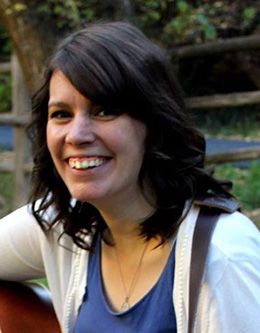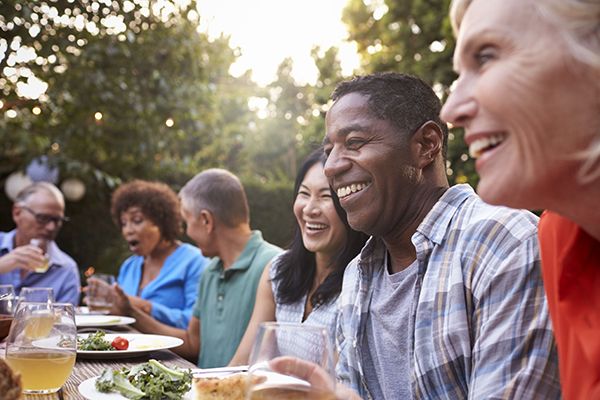Housing the Savior’s Love
June 29, 2018 • Blog Post
A few years ago, I visited New England and fell in love with its history and heritage and beauty. Among the many highlights was a tour of Louisa May Alcott’s home, fondly called Orchard House by fans of Alcott’s Little Women. Though it had been more than 150 years since the Alcotts had lived there, the place held a tangible spirit, a strong sense of education, family, faith, love, and service. It may have been that I could imagine Little Women’s Marmie in the kitchen making meals to give to the needy or Alcott’s father Bronson at his desk writing essays that would revolutionize America’s educational system. But more than my imagination, it felt like these characteristics were part of the home itself, that the old eaves and floorboards breathed out the essence of the former inhabitants.
Since my visit, I have pondered again and again about that house. How was it that that home still carried those virtues? How could I create a space that feels as good as that home did? How could I be a person that uplifts like that home and those who lived there did?
In part answer to these questions, I’ve begun focusing on two elements of my life: my motives and my actions.
My Motives
In a March 2011 devotional, then Sunday School general president Russell T. Osguthorpe spoke on motives:
I keep asking myself, “What if our only motive were love? What if everything we did, we did out of love?” . . .
Motives matter. They matter a lot. In the end, why we do things is probably more important than what we do. . . . One of the purest motives of all is love.
I can imagine the Alcotts were often motivated by love, and I think that that love persists in their home today. How much more impactful would my life be if I tried to make all my actions motivated by love? How much more would the Lord use me if He knew I made decisions in an effort to love others better?
My Actions
Osguthorpe continued to share how a motivation of love will permeate into the everyday actions of our lives, as it did the Savior’s: “[The Lord] helped so many while He was on His way to help someone else.”
As prophet and follower of Christ, President Thomas S. Monson lived his life in similar fashion, taking random routes home from work to visit others or stopping in at a hospital to comfort patients. President Monson’s charity-motivated life was made up of many actions like these. His life is a testament of his oft-repeated phrase: “Decisions determine destiny” (“Decisions Determine Destiny,” November 6, 2005).
And so, if I am truly going to be a love-motivated person, then my individual actions accumulate into who I will become. When it’s easier to not be friendly and stay quiet, I need to look outside myself and offer kindness. When I’m frustrated by opposing viewpoints, I need to turn on a listening ear and seek to understand rather than persuade. When I’d rather spend my Saturday morning cozy in bed, I need to go find an opportunity to serve and bring more love in the world.
Obviously, this is all a journey—one fraught with many failed attempts and many lazy moments—but if I focus on love, I hope that my life can be a summation of charity and that I can create a home that exudes love a century after I’m no longer living there.

Amanda Kae Fronk is the communications manager for BYU Speeches. She is an avid collector of hobbies with book buying, nature watching, and food sampling being among the most enduring. She aspires to one day be called a master wordsmith, a woman of grace, and an owner of a devoted heart.




